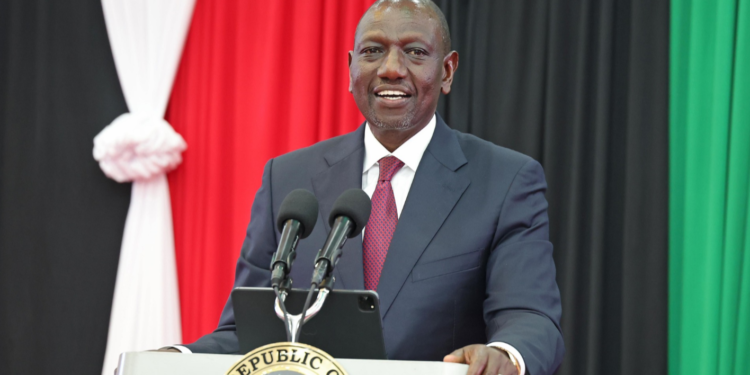Kenya has secured a USD 210 million loan which is equivalent to KES 33 billion from the Trade and Development Bank (TDB), a pan-African lender, as part of its efforts to meet the impending USD 2 billion Eurobond repayment due in June 2024.
This funding complements the recent disbursements from the International Monetary Fund (IMF), totaling USD 624.5 million (KES 100.4 billion) under the Extended Fund Facility (EFF) and the Extended Credit Facility (ECF) arrangements, along with USD 60.2 million (KES 9.7 billion) under the Resilience Sustainability Facility (RSF).
The National Treasury envisions additional financing from the TDB, World Bank, and the African Development Bank before the end of June.
In response to this development, the market exhibited a calming effect, as reported by Bloomberg, with the yields on Kenya’s 2024 Eurobond decreasing by 43 basis points to 14.44% by 11:08 a.m. in Nairobi.
RELATEDPOSTS
The Kenyan government is actively fortifying its foreign exchange reserves in anticipation of the Eurobond bullet payment scheduled for June 2024, particularly given the significant depreciation of the shilling, which has lost 26.7% of its value against the US Dollar.
The challenge for African nations to refinance their foreign bonds through the international bonds market has been exacerbated by the US Federal Reserve’s aggressive interest rate hikes since 2022, aimed at combating high inflation.
Despite these challenges, the National Treasury remains optimistic about securing additional financing from the TDB before the conclusion of the current financial year.
This optimism is fueled by Kenya’s recent successful interest payment, distinguishing it from Ethiopia, its neighbor, which defaulted on a USD 33.0 million coupon payment in December 2023, raising concerns about its ability to repay the USD 1.0 billion Eurobond due in December 2024.
This situation underscores the crucial role played by financial institutions such as TDB and the IMF in supporting member countries during periods of financial stress. However, there is a need for measures to stabilize the Kenyan shilling and effectively manage the country’s escalating debt obligations.














